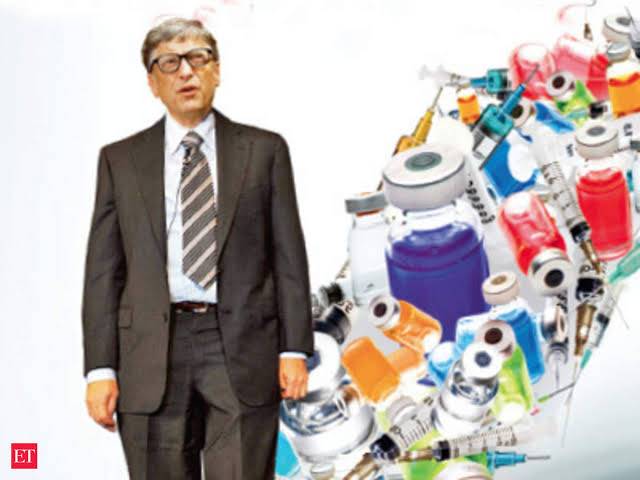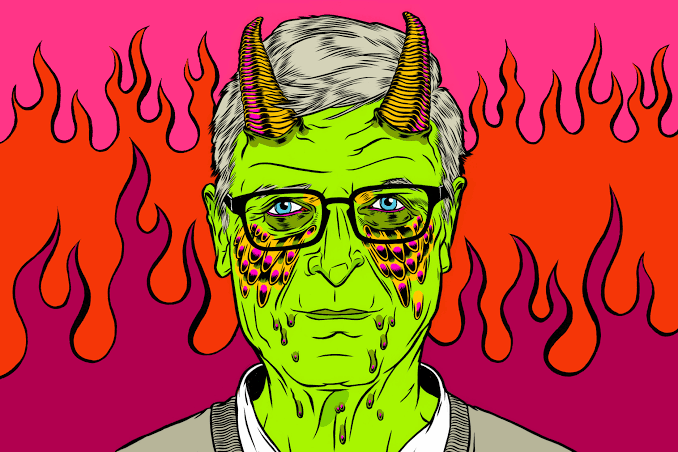
"If you said to an ordinary person, ‘We’re in a pandemic. Let’s figure out everyone who can make vaccines and give them everything they need to get online as fast as possible,’ it would be a no-brainer".
— James Love, Director of Knowledge Ecology International.
Public health experts and advocates of 'open science' assembled under the auspices of the WHO in February 2020 to chart out an ‘R&D Blueprint’. The global access to vaccine research and production has been inequitably restrictive ever since, and the activism faded away as pharma companies and their respective governments backed out from earlier 'pledges', thereby worsening gaps between South and North.
While the global South and civil society groups have been clamoring for tech transfers, Gates’ latest move is to institutionalize the ACT-Accelerator: his signature initiative for status quo rights within medicine monopolies, withering the optimism and sense of possibility for global equity that defined the early days.
Welcome the propriety walls and monopoly intellectual property rights championed by "Bill Gates, Vaccine Monster" - as read the headline in The New Republic with the following 'scary' poster:
 While the above description might seem to be too far fetched, there is no doubt to the fact that the once-richest man and world's de facto "public health czar" has impeded the access and supply of COVID-19 vaccines at the expense of global equity.
While the above description might seem to be too far fetched, there is no doubt to the fact that the once-richest man and world's de facto "public health czar" has impeded the access and supply of COVID-19 vaccines at the expense of global equity.The idea of a global knowledge fund for the pandemic defined the WHO's COVID-19 Technology Access Pool, or C-TAP. However, Gates’ signature approach — that pooling would be “counterproductive”, and intellectual property (IP) would not be a barrier to access but would instead encourage innovation — has dampened the enthusiasm for a ‘people’s vaccine'.
The immensity of the pandemic, much to the surprise of global health experts, did not override proprietary science as hoped.
However, coalescing world governments have now turned their focus away from how, in the initial days, broader collaboration and cooperation led to promising progress through collective research in weeks; which would have otherwise taken months or years, even in monopoly settings.
In April, Bill Gates launched a bold bid to manage the world’s scientific response to the pandemic, as noted in The New Republic. Gates’s COVID-19 ACT-Accelerator as a public-private partnership based on charity was in contrast to the WHO’s C-TAP and was openly endorsed by pharma chiefs. Gates’s long-standing commitment has been to endorse the exclusive intellectual property claims of pharma companies. Think of his reputation as a philanthropist and global benefactor which, sadly, has been grossly overpassed. He has gone all-in for a few as opposed to being an 'inspiration for all', a title he formerly held.
Gates' response has been to slide low- and middle-income countries into a pit. The COVAX program committed to provide a vaccine to 20% of the populations within poorer countries. The rest was to be secured through 'imaginary' free markets. Gates’ goal to provide discounted vaccines to one-fifth of the global population did not materialize, but the lesson was hardly learned: what could be anticipated, the market failures, came at a cost to both access and supply, thus causing a double crisis with IP at the center. The artificial shortage of vaccines is being caused primarily due to the inappropriate use of intellectual property rights. Yet, Gates has stood by his position and repeatedly dismissed critics in every interview.
Close to 2.5 billion people in 130 countries have not been administered a single dose so far. The global immunity target set to be achieved by 2024 seems to have moved years ahead. In terms of vaccine provision in global South versus North, the ten most highly developed countries have secured three-quarters of the supply through bilateral dealing and through banning exports and knowledge sharing.
How did that happen?
Gates intervened, and stopped ‘publicizing’ the vaccines due to his unwavering position of protecting intellectual property rights. Any pooling, sharing, or tech transfer has been labeled “nonsense” according to the Pfizer CEO who supports Gates.
In early March, senior Gates staff joined pharma executives for a “Global C19 Vaccine Supply Chain and Manufacturing Summit” convened by Chatham House in London. The summit sought to address the tech-transfer question within the 'usual frame' of monopoly rights and bilateral licensing – something that has created major hurdles in equitable access to COVID-19 vaccination and has only entrenched the status quo.
The innovative application of one category of intellectual property copyrights — applied to computer code — made Gates the richest man in the world, starting in 1995, for most of two decades. He carries the same flag in vaccination initiatives, in alliance with the pharma giants. True to form, Gates was on the side of these monopolies during the miserable depths of the 1990s African AIDS crisis as well.
A bloc of developing countries at the WTO explained the need for a waiver on certain intellectual property provisions by pointing to the rather large gap that exists between what COVAX or ACT-A can deliver, and what is required in developing and least developed countries. On the other hand, Gates has been tacitly and explicitly defending the legitimacy of knowledge monopolies.
According to the WHO chief, it is a catastrophic moral failure on the part of rich countries who are oblivious to the fact that their approach would be self-defeating, because the pandemic has taught us all an indigestible truth: no one is safe until and unless everyone is safe.
The medicine market failures have made it imperative to revisualise and revamp global partnership initiatives left oh the backburner. A rethink by pharma executives who mislabeling the C-TAP as 'dangerous', as well as a “solidarity call to action”, is urgently needed. Most importantly, Bill Gates and his foundation should check their pulse, and revisit the public health initiatives they sponsor in order to bring them at par with ideological commitments.
